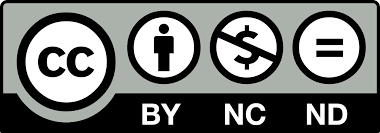Minimum Wage and its Functions in Poland
Roman Kisiel
Department of Economic and Regional Policy, University of Warmia and Mazury in OlsztynMagda Orłowska
Abstract
The article discusses the issues concerning the minimum wage. Remuneration is the inseparable element of work provided to the employer. Currently, numerous forms and types of it exist, among them the minimum wage which has been the subject of political and media discussions for many years. That subject attracts immense attention and on can find many different and contradictory opinions concerning it. The objective of this article is to draw attention to the issues of minimum wage in Poland analysing the results of own studies that were conducted in 2013. The questionnaire based survey covered 200 respondents, mainly employees, people searching for a job and employers. The questionnaire consisted of 21 questions with the legend (the last 5 questions concerning the sociodemographic situation of the respondents). The minimum wage in Poland is the subject of numerous arguments and disagreements among the employees, trade unions and the government; that is why the article presents not only the principles of minimum wage operation but also the consequences both positive and negative. It also presents the correlation between the costs of work and the minimum remuneration as well as its influence on employment moving from the discussion and analysis of own studies concerning the functioning of the minimum wage in Poland as seen by the unemployed, employees and employers. The vast majority of the respondents (79%) are for the minimum wage increase. And 69% of the respondents believe that the minimum remuneration has the largest influence on the employer.
Keywords:
remuneration, minimum wage, costs of workReferences
Liszcz T. 1995. Prawo pracy. Info-Trade, Gdańsk.
Marks-Bielska R., Kordecki Ł. 2008. Czynniki kształtujące przedsiębiorczość gospodarczą na obszarach wiejskich na przykładzie gminy Gniew, woj. pomorskie. In: Tworzenie i realizacja polityki społeczno-ekonomicznej w Polsce. Aspekty teoretyczne i praktyczne. Ed. E. Kryńska, t. II. Wyd. Uniwersytetu Łódzkiego.
Marks-Bielska R., Krzywiec R. 2009. Uwarunkowania rozwoju sektora małych i średnich przedsiębiorstw. in: Przemiany w polskiej gospodarce w okresie transformacji systemowej (1989-2007). Eds. R. Kisiel, R. Marks-Bielska. Wyd. MAL-ART-GRAF Jezierski, Olsztyn.
Minimalne wynagrodzenie a koszty pracodawcy w 2014 roku. 2014. INFOR.PL KSIĘGOWOŚĆ FIRM. On line: http://ksiegowosc.infor.pl/podatki/pit/pit/pracownik/325707,Minimalne-wynagrodzenie-a-koszty-pracodawcy-w-2014- roku.html (access: 9.09.2014).
Ogłodziński R. 2013. 10 rzeczy, które warto wiedzieć o płacy minimalnej. Biztok.pl. On line: http://www.biztok.pl/gospodarka/10-rzeczy-ktore-warto-wiedziec-o-placy-minimalnej_s8104 (access: 3.12.2013).
Oleksyn T. 1997. Praca i płaca w zarządzaniu. Międzynarodowa Szkoła Menedżerów, Warszawa.
Piechowiak Ł. 2012. Kto zyskuje na wzroście płacy minimalnej? Bankier.pl. On line: http://euro.bankier.pl/news/article.html? article-id=2568367 (access: 3.12.2013).
Płace i koszty pracy. 2015. eurostat. Statistic Explained. On line: http://epp.eurostat.ec.euro-pa.eu/statistics-explained/index.php/Wages-and-labour-costs/pl (access: 3.12.2013).
Pracujemy za półdarmo. 2013. Rzeczpospolita. Ekonomia. On line: http://www.ekonomia.rp.pl/ar- tykul/1000011.html (access: 4.12.2013).
Sekuła Z. 2011. Struktury wynagradzania pracowników. Wolters Kluwer SA, Warszawa.
Szaban J. M. 2013. Rynek pracy w Polsce i Unii Europejskiej. Difin, Warszawa.
Szczebiot-Knoblauch L., Kisiel R. 2014. Podaż siły roboczej na rynku pracy na obszarach wiejskich w Polsce. Oeconomia Copernicana, 1.
Department of Economic and Regional Policy, University of Warmia and Mazury in Olsztyn
License
An Author declares that his paper has not been published before (under the same or another title, or is a part of another publication) and does not infringe copyrights of other persons**. At the same time, the Author transfers to the Publisher the exclusive right to publish and to circulate this work in print in the form of a non-serial journal publication and in a form of an electronic publication.
The journal is available on Creative Common license CC-BY-NC-ND






